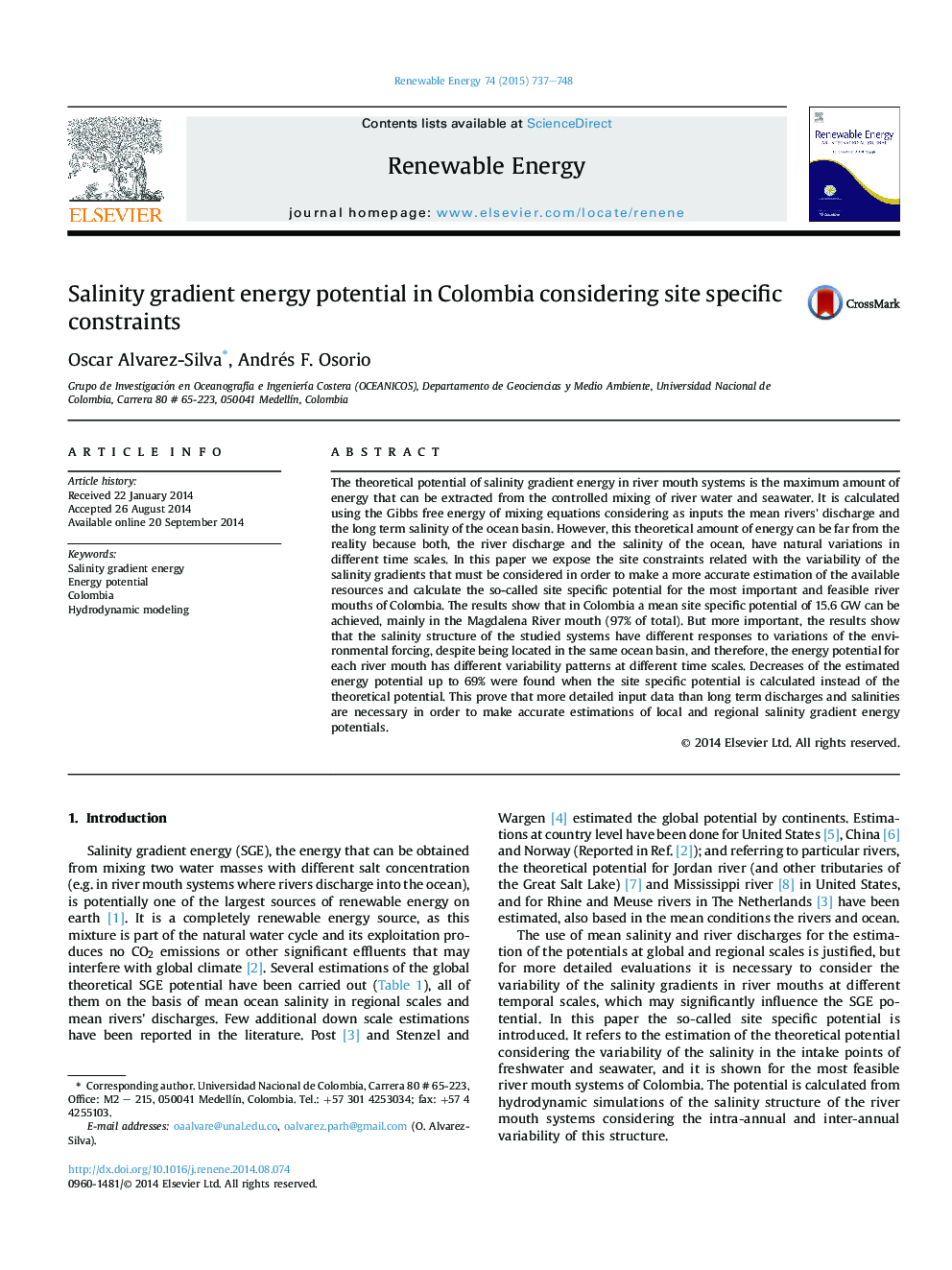| کد مقاله | کد نشریه | سال انتشار | مقاله انگلیسی | نسخه تمام متن |
|---|---|---|---|---|
| 300027 | 512465 | 2015 | 12 صفحه PDF | دانلود رایگان |
• We introduce the site specific potential to estimate salinity gradient energy resources.
• We calculate this potential for the most feasible river mouths of Colombia.
• There is a mean site specific potential of 15.6 GW mainly in the Magdalena River mouth.
• Reduction of the potential up to 69% was found when comparing with theoretical potential.
The theoretical potential of salinity gradient energy in river mouth systems is the maximum amount of energy that can be extracted from the controlled mixing of river water and seawater. It is calculated using the Gibbs free energy of mixing equations considering as inputs the mean rivers' discharge and the long term salinity of the ocean basin. However, this theoretical amount of energy can be far from the reality because both, the river discharge and the salinity of the ocean, have natural variations in different time scales. In this paper we expose the site constraints related with the variability of the salinity gradients that must be considered in order to make a more accurate estimation of the available resources and calculate the so-called site specific potential for the most important and feasible river mouths of Colombia. The results show that in Colombia a mean site specific potential of 15.6 GW can be achieved, mainly in the Magdalena River mouth (97% of total). But more important, the results show that the salinity structure of the studied systems have different responses to variations of the environmental forcing, despite being located in the same ocean basin, and therefore, the energy potential for each river mouth has different variability patterns at different time scales. Decreases of the estimated energy potential up to 69% were found when the site specific potential is calculated instead of the theoretical potential. This prove that more detailed input data than long term discharges and salinities are necessary in order to make accurate estimations of local and regional salinity gradient energy potentials.
Journal: Renewable Energy - Volume 74, February 2015, Pages 737–748
